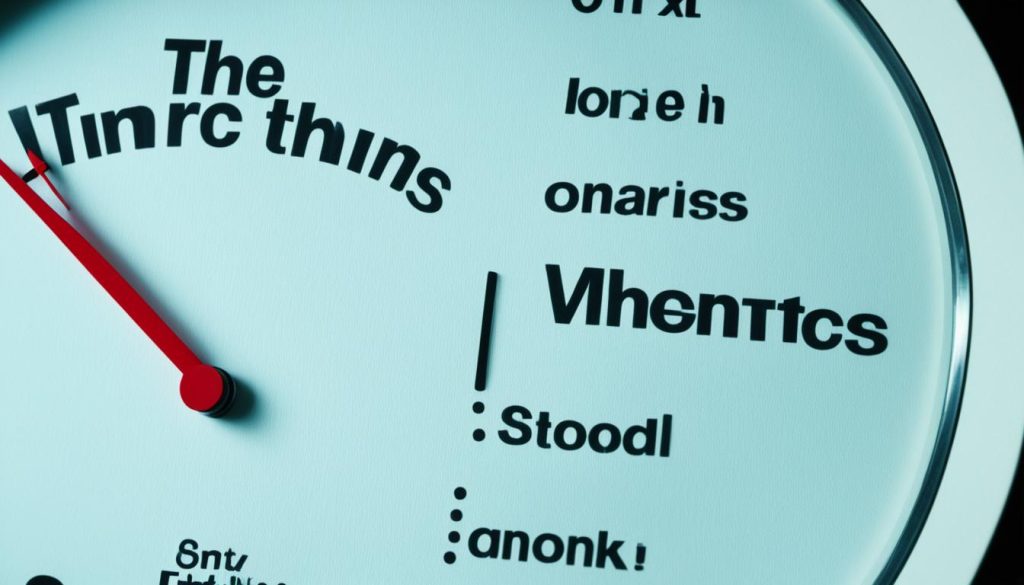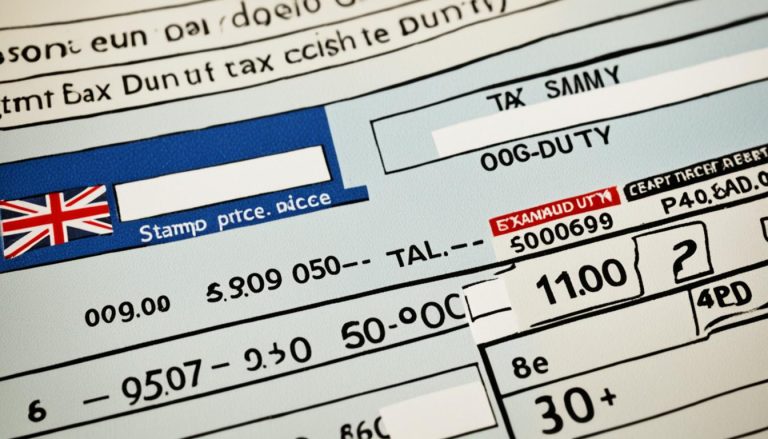Are you in the process of buying or selling a property in the UK? If so, you may be wondering what time of day does exchange of contracts happen. Understanding the timing of this crucial step is important for both buyers and sellers to ensure a smooth transaction.
Understanding the Contract Exchange Process
In the UK, the contract exchange process plays a crucial role in the buying and selling of properties. It involves several legal steps and the participation of various parties to ensure a smooth and secure transaction. Let’s take a closer look at how this process works.
Legal Requirements for Contract Exchange
In order to exchange contracts, certain legal requirements must be met. These typically include:
- Offer Acceptance: The buyer submits an offer and the seller accepts it, establishing the basis for the contract.
- Contract Drafting: A solicitor or conveyancer prepares a legally binding contract that outlines the terms and conditions of the property sale.
- Contract Review: Both parties review the contract and may negotiate any necessary amendments or additions.
- Contract Signing: Once both parties are satisfied, they sign the contract, indicating their agreement to the terms.
- Completion Date: A completion date is agreed upon, typically a few weeks after contract exchange, when the property will officially change ownership.
Parties Involved in the Exchange Process
The contract exchange process requires the involvement of several key parties:
- Buyer: The individual or entity purchasing the property.
- Seller: The individual or entity selling the property.
- Estate Agent: An intermediary who facilitates communication between the buyer, seller, and other involved parties.
- Solicitor or Conveyancer: A legal professional who handles the legal aspects of the transaction, including drafting and reviewing contracts.
- Mortgage Lender: If the buyer requires a mortgage to finance the purchase, the Mortgage will be involved in ensuring the necessary funds are available.
Each party contributes to the contract exchange process, ensuring compliance with legal requirements and protecting the interests of their respective clients.
What Time of Day Does Exchange of Contracts Happen in UK?
In the UK, the exchange of contracts in a property transaction typically happens during normal business hours on weekdays, often between 9 AM and 5 PM. However, the exact time can vary depending on the parties involved, their solicitors, and the urgency of the transaction.
It’s important to note that the exchange process is usually coordinated via telephone or email between the solicitors of both the buyer and the seller. Once the exchange occurs, the contracts become legally binding, and it’s common for the completion date to be agreed upon at this time as well.
If you’re involved in a property transaction, it’s wise to communicate closely with your solicitor so that you’re aware of the planned timeline for the exchange of contracts.
The Average Duration
The typical time for contract exchange can vary depending on various factors. On average, it takes around 6 to 8 weeks from the point of offer acceptance to the exchange of contracts. This duration allows for important tasks, such as property surveys, mortgage approvals, and legal processes, to be completed.
Factors That May Cause Delays
However, it’s important to note that this timeframe is just an estimate, and there are several factors that can cause delays in the contract exchange process. Some of these factors may include:
- Chain Delays: If you are part of a property chain, any delays in the transactions of other parties involved can impact the timing of your contract exchange.
- Mortgage Approvals: Securing a mortgage can sometimes take longer than anticipated, especially if there are issues with credit checks, documentation, or valuation.
- Legal Processes: The legal processes involved in property transactions, such as searches, enquiries, and the preparation of contracts, can also contribute to delays. This is why it’s essential to have an experienced solicitor or conveyancer overseeing the process.
It’s important to remain patient during this stage and maintain regular communication with your solicitor or conveyancer. They will keep you informed of any potential delays and guide you through the process.
| Factors | Impact on Timing |
|---|---|
| Chain Delays | May cause significant delays if transactions in the chain experience setbacks |
| Mortgage Approvals | If there are issues with credit checks, documentation, or valuation, it can delay the process |
| Legal Processes | The time taken for searches, enquiries, and contract preparation can vary and affect the overall timeline |
As always, it’s essential to be proactive and make sure you have everything in order to minimize any potential delays. Cooperating with all parties involved, including estate agents, solicitors, and mortgage providers, can help expedite the process and ensure a smooth contract exchange.

Factors Influencing the Timing of Exchanging Contracts
When it comes to the timing of exchanging contracts in a property transaction, several factors can come into play. These factors can have a significant impact on the overall timeline, potentially resulting in delays or adjustments to the expected timeframe. Understanding these factors is crucial for both buyers and sellers to ensure a smooth and efficient contract exchange process.
Chain Delays
One factor that affects the timing of exchanging contracts is chain delays. In a property chain, where multiple transactions are dependent on each other, any delay in one link can cause a ripple effect and impact the entire chain. Common reasons for chain delays include issues with surveys, complications in the mortgage process, or difficulties in securing necessary documentation.
Mortgage Approvals
Obtaining a mortgage is a crucial step in many property transactions. The timing of mortgage approvals can vary depending on various factors, including the complexity of the application, the lender’s processing times, and any additional requirements imposed by the lender. Delays in mortgage approvals can affect the timing of exchanging contracts, as buyers may need to wait for their mortgage offer before proceeding with the exchange.
Legal Processes
The completion of various legal processes is another factor that can influence the timing of exchanging contracts. These processes may involve obtaining essential documentation, conducting searches, and addressing any legal matters related to the property. The complexity of these processes and any issues that arise can lead to delays in the contract exchange timeline.
While the factors mentioned above are common influencers of the timing of exchanging contracts, it’s important to note that every property transaction is unique. Each transaction may have its own set of circumstances and potential challenges that can impact the timeline. Buyers and sellers should work closely with their solicitors or conveyancers to navigate these factors and ensure a successful contract exchange.
| Factors | Impact on Timing |
|---|---|
| Chain Delays | Potential for significant delays if any link in the property chain experiences issues. |
| Mortgage Approvals | Timely approval is necessary for buyers to proceed with the contract exchange. |
| Legal Processes | Completing legal requirements can contribute to delays in the contract exchange timeline. |
Potential Alternatives for Contract Exchange Timing
While the standard practice for contract exchange timing in the UK typically follows regular business hours, there may be situations where parties involved in a property transaction may consider alternative options. Flexibility in timing can be particularly beneficial for individuals with demanding schedules or those facing time constraints. Let’s explore some potential alternatives for contract exchange timing:
- Flexible working hours: In some cases, parties may agree to extend business hours to accommodate contract exchanges outside of traditional office hours. This option allows individuals with busy schedules to complete the exchange at a more convenient time.
- Early morning exchanges: For those who prefer an early start to their day, conducting contract exchanges in the morning can be a viable option. This allows parties to finalize the transaction and proceed with other activities throughout the day.
- Evening exchanges: On the other hand, some individuals may find it more convenient to exchange contracts in the evening. This alternative provides flexibility for those with other commitments during the day.
- Weekend exchanges: Contract exchanges can also take place on weekends, providing greater flexibility for parties involved. This option can be particularly useful for individuals who are unable to allocate time during weekdays due to work or personal commitments.
It is important for parties to discuss and agree upon alternative timing options with their solicitors or conveyancers. While flexible timing may be possible, it is crucial to consider the availability and cooperation of all parties involved in the transaction.
Ultimately, the choice of contract exchange timing should prioritize the convenience and efficiency of all parties while ensuring the legal requirements are met.

Conclusion
In conclusion, the timing of exchanging contracts in the UK typically follows a standard process. Once all legal steps and negotiations have been finalized, the exchange of contracts usually takes place. However, it’s important to note that individual circumstances and external factors can influence the timeline of a property transaction.
Buyers and sellers should work closely with their solicitors or conveyancers throughout the process to understand the specific timeline and ensure a smooth contract exchange. These professionals will guide them through the necessary legal procedures, facilitate communication between all parties involved, and help navigate any potential delays or challenges.
While there may be some flexibility in terms of the timing of contract exchanges, it is generally advised to adhere to regular business hours. This ensures that all parties can be readily available, including solicitors, conveyancers, and relevant institutions such as banks and mortgage providers.
By maintaining clear communication and staying informed about the progress of the property transaction, buyers and sellers can minimize uncertainties and streamline the contract exchange process, resulting in a successful and timely exchange of contracts.
FAQ
How can I ensure a smooth exchange of contracts?
To facilitate a successful exchange, maintain open communication with your solicitor or conveyancer, stay organized with required documentation, and collaborate closely with all parties involved to minimize potential delays.
What should I do if there are delays in my transaction?
Remain patient and keep regular communication with your solicitor or conveyancer. They will inform you of any issues and guide you through the steps needed to move forward effectively.
What happens after the contracts are exchanged?
Once contracts are exchanged, the transaction is legally binding. The agreed completion date is set, at which point ownership of the property will transfer to the buyer, and payment will be made to the seller.







